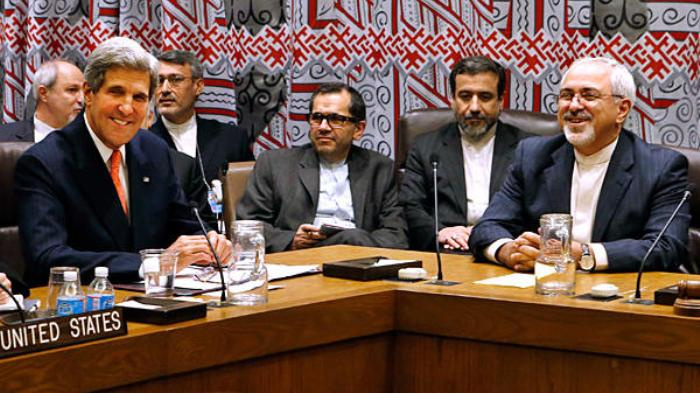Is Washington’s Retreat Genuine?

By: Saeed Ra’ufi
Some have argued that the nuclear deal is a sign of the United States’ retreat after years of hostility against Iran. Although this argument seems to be to some extent a slogan, but not all the slogans are necessarily false. In fact, a form of retreat can be seen in the US’ policy. This is revealed when comparing US’ policy in Republican administration and Obama’s second round of administration with the present situation. In George Bush’s era, Iran always felt the shadow of America's military threat. In the second round of Obama’s presidency, Iran was confronting one of the most brutal kinds of organized economic sanctions. In general, it can be argued that in the last ten years we have been always facing an “aggressive” policy by the United States which pursued extermination of Iran’s political regime with obvious threats against its soft and hard sectors.
Undoubtedly, the nuclear agreement is the clear negation of United States’ offensive policy during the last ten years. The shadow of military threat is fading out and has been off the table, and the brutal systematic sanctions are “supposed” to be lifted. These developments clearly demonstrate that the US has ceased threatening Iran economically or militarily, literally “retreating”. The main question here is the United States’ “intention” by this retreat, whether it is deceptive or genuine.
People who believe this is a genuine retreat usually try to prove their point by referring to US’ regional security concerns: that America intends to transfer its military focus from the Middle East to another region; and for this, it aims to balance the power between the main states of the region, Iran and Saudi Arabia. Such a policy requires Iran not to have a nuclear weapon (otherwise it would lead to a nuclear cold war in hot region of the Middle East; and its ultimate consequence would be a pervasive uncontrollable extraregional war.)
Within this strategy, Iran as a Shia military power should survive in its current form as the Islamic Republic in order to establish power balance in the region. Otherwise, with elimination of Iran, Salafi terrorist groups will create a kind of chaos which directly attacks the United States’ interests. Supporters of this interpretation consider this new American policy as a sign of failure of democratization and secularization of the Middle East. US would be practically allied with neither side of the balance and would only try to prevent disruption of the balance. Considering this fact, the United States’ retreat would be genuine and demonstrates that US has abandoned overthrow of Iran’s regime and is no longer following the policy of “non-existence of the Islamic Republic of Iran” and tries to benefit its “existence”. Iran should use this opportunity to enhance its political and economic position.
Others who consider the United States’ retreat as deceptive read the story differently. They believe the nuclear agreement is the result of US policy’s failure in overthrow of Iran’s regime during the last three decades, and argue that Washington is trying to pursue the same goals in a different way. In this point of view, United States can follow a step-by-step progression policy, meaning that with triumph in the nuclear battle, the US will move forward to win the “human right battle” and will follow this trend until the regime’s eventual overthrow.
Another possibility is that Washington may use this agreement as the sword of Damocles to change Iran’s regional or even domestic policies. This time, the US intends to weaken Iran through economic and cultural influences.
Only time can reveal which of these interpretations is correct. We should keep both of them in mind, and stop populist optimism in respect of the nuclear agreement. We should always be attentive of the US being deceptive. In such a dusty atmosphere one should always be alert.
* The following piece was originally published in Tabnak, a popular website affiliated with former IRGC commander Mohsen Rezaei.
Translated by: Parisa Farhadi

